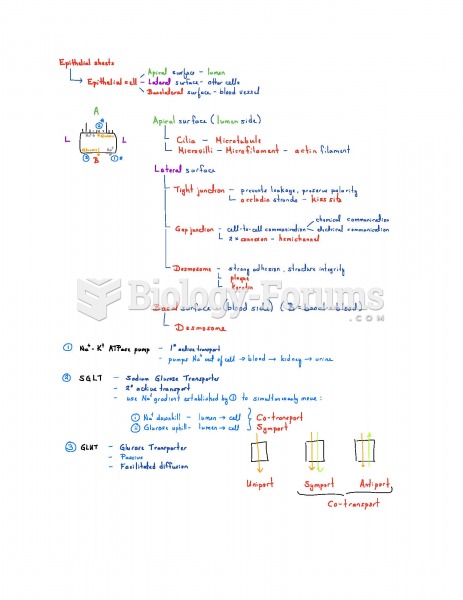|
|
|
Nearly all drugs pass into human breast milk. How often a drug is taken influences the amount of drug that will pass into the milk. Medications taken 30 to 60 minutes before breastfeeding are likely to be at peak blood levels when the baby is nursing.
The immune system needs 9.5 hours of sleep in total darkness to recharge completely.
The oldest recorded age was 122. Madame Jeanne Calment was born in France in 1875 and died in 1997. She was a vegetarian and loved olive oil, port wine, and chocolate.
The tallest man ever known was Robert Wadlow, an American, who reached the height of 8 feet 11 inches. He died at age 26 years from an infection caused by the immense weight of his body (491 pounds) and the stress on his leg bones and muscles.
In the United States, an estimated 50 million unnecessary antibiotics are prescribed for viral respiratory infections.



![GEN. BIO. TEST HELP [EMERGENCY]](https://biology-forums.com/gallery/47/medium_126671_18_12_13_12_37_01.png)



